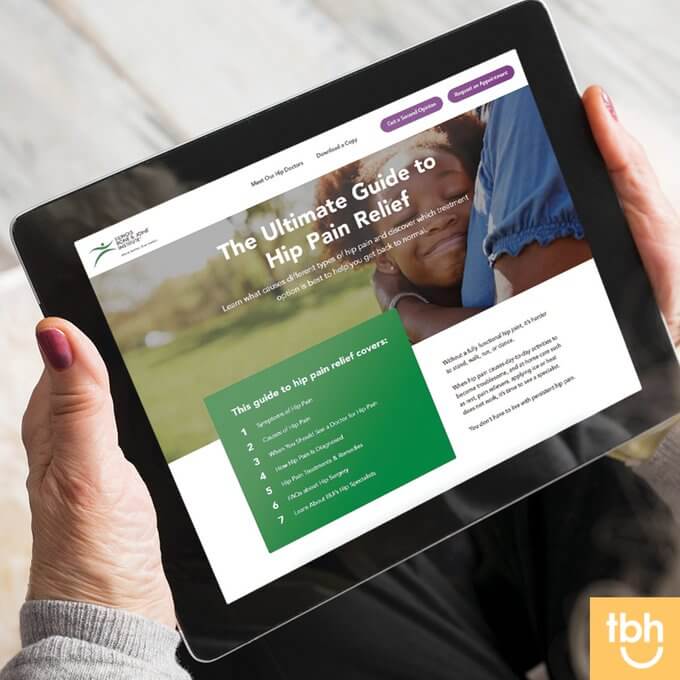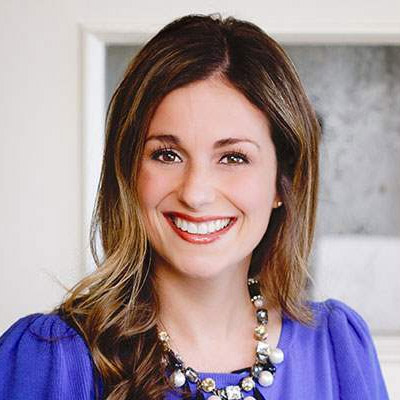With a rapidly-expanding healthcare market and aging baby boomer population, there’s a growing need for more relevant, targeted senior healthcare marketing.
The U.S. Census Bureau predicts that people 65 and older will account for over 20 percent of the total population by 2030. Americans also live longer—average life expectancy went up from 75.19 years in 1990 to 78.99 in 2021.
As seniors live longer, they have more years to develop chronic health conditions that require medical care. In the years to come, standing out in a competitive market will require providers to build better, more data-driven senior healthcare marketing strategies.
Senior care market trends and statistics
The senior healthcare market continues to grow well into the hundreds of billions of dollars, and the pandemic has only accelerated the competition for healthcare dollars.
Here are a few interesting senior healthcare marketing trends:
- AARP reports that seniors needing care for chronic illnesses will increase from about 14% of the aging population in 2010 to 21% by 2050.
- The United Health Foundation found that while baby boomers smoke 50% less than the previous generation, they’re 55% more likely to have diabetes and 25% more likely to be obese.
- The home healthcare market will grow to $225 billion by 2024.
- According to Solution Reach’s patient-provider relationship study, 20% of baby boomers will switch doctors in the next three years.
Trends related to COVID-19
The COVID-19 pandemic has significantly impacted nearly every aspect of life, especially the more vulnerable senior population. This has had a ripple effect on how people choose to receive care. For example, occupancy in senior living communities is down to 81% for independent living and 75% for assisted living.
Covid has also impacted staffing and created shortages for healthcare providers. Many people have left the workforce or are changing careers because of health concerns, and others have left (or been asked to leave) their healthcare jobs because they’re hesitant to get the Covid vaccine. And, according to research by Caring.com, only 50% of senior caregivers are fully vaccinated.
These are trends that marketers must contend with when building a strategic senior healthcare marketing plan in the post-pandemic era.
How to market to seniors
Effective senior healthcare marketing today starts with a deeper understanding of what it means to be a senior. That means doing your research and taking the time to truly understand the population you’re speaking to and what matters to them. It also means following best practices of healthcare marketing ethics.
Understand your target audience
Marketing that uses stereotypes of “senior citizens” who are gray and feeble can be offensive to vibrant, active seniors. People are only as old as they feel, and nobody wants to be seen as over-the-hill or ancient.
There is also a wide range of ages that may or may not fall into the “senior” category, the largest being the baby boomer generation.
Marketing to baby boomers
Baby boomers are people born between 1946 and 1964. (Not to be confused with their parents—“the silent generation”—born in 1945 and earlier).
As the largest generational group in U.S. history, baby boomers have had a significant impact on the economy. They will play a big role as the primary consumers of healthcare products and services as they age. They will have the lion’s share of buying power in the healthcare market.
How to frame your marketing message to seniors
The language you use in medical marketing and other patient communications matters. This applies to the words on your website pages, blog posts, emails, printed materials, social media posts, videos, and more. In particular, in senior healthcare marketing, it’s essential to be thoughtful about what will resonate with your audience.
Keep things simple and secure
Unlike younger generations, older audiences aren’t typically fans of trendy jargon or acronyms (OMG!). In general, senior healthcare consumers want information presented clearly, honestly, and concisely. They’re more drawn to content that is relatable and educational.
Privacy and security are also crucial to most seniors, especially regarding their medical or financial information. Make sure patient privacy and data security are considered part of your senior healthcare marketing strategy.
Seniors need straightforward and easy advertising and marketing knowledge
Any place you’re communicating with patients or potential patients, your messaging should reflect your healthcare organization and the services you provide. If your patient marketing content is poorly written or uses too much technical language, it won’t be very effective.
Ensure your senior health services marketing content is honest, consistent, easy to understand, and free of grammatical errors. Because more older people are used to having conversations over the phone or in person, use a conversational tone in your writing.
Successful senior healthcare marketing strategies
To most senior healthcare consumers, providers all look about the same and offer similar services. If you take the time to learn more about the unique needs of your senior audience and build a senior healthcare marketing plan around addressing those needs, you’ll stand out amongst your competitors.
Sometimes it can help to take a step back and look at the goals of your senior healthcare marketing strategy. Get back to basics with some clear overarching goals, like:
- Improve patient education about health and wellness
- Raise awareness about the services you provide (and why they’re important)
- Demonstrate how you deliver the best patient care

Full-funnel omnichannel patient engagement
Despite the stereotypes, many seniors are surprisingly tech-savvy. They routinely engage with various communications channels across multiple mediums, from direct mail to email to social media.
When planning healthcare marketing to seniors, your strategy should include tactics across all these channels, using online and offline tactics to drive engagement with the senior audience.
Provide a more personalized experience
The senior healthcare consumer tends to have high expectations and wants excellent customer service. When it comes to digital marketing in healthcare, this means delivering a more personalized experience.
When researching healthcare providers online, seniors expect it to be easy to learn about your offerings and schedule an appointment. If you make things too tricky with an outdated website or broken patient experience, they’ll quickly move on to another provider.
Don’t neglect digital marketing channels
Healthcare providers used to rely on word-of-mouth to attract new patients or customers. But today, the experience a potential patient has with your healthcare business most often starts online—even for seniors.
Most seniors have a smartphone or tablet (or both) and are comfortable researching online and using social media. Make sure your senior healthcare marketing plan outlines how you plan to get in front of those patients as they search for new providers.
As a marketer, digital channels also give you the added benefit of better tracking. You can get real-time analytics on your digital campaigns and make smarter adjustments.
Make digital channels accessible
As people age, they can often develop hearing or vision impairments. It’s essential to be mindful of accessibility when creating your website or senior healthcare marketing content. Everyone’s ability level is different, and so are their accessibility needs. Disabilities that affect computer and web usage include:
- Visual: Low vision, blindness, or color-blindness
- Auditory: Deafness or hard-of-hearing
- Physical: Inability to use a traditional mouse, slow response time, or limited fine motor skills
- Cognitive: Learning disabilities
To help you understand web use from various perspectives, the Web Accessibility Initiative (W3C) has a library exploring disabilities that affect web use and gives examples of barriers those with disabilities face.
The W3C’s Web Content Accessibility Guidelines (WCAG) are widely accepted standards for web accessibility requirements. These guidelines can help keep accessibility in mind when building your senior healthcare marketing website.
Search engine optimization (SEO) remains critical
With so many seniors going to Google to research healthcare providers, improving and maintaining your website’s SEO ranking must be part of your senior healthcare marketing strategy.
It’s also essential to keep your organization’s Facebook page and Google My Business profile up-to-date and ask for client/patient ratings to boost your SEO.
Senior healthcare marketing insights: media preferences
What are the best channels for marketing to seniors? All of them! Seniors have spent many years relying on newspapers, direct mail, and TV for information and advertising. They have also been around since the internet was invented and have become used in digital channels.
A multichannel mix with consistent messaging ensures you cover all your bases to provide a seamless experience for senior healthcare consumers.
The social media channel seniors use most: Facebook
According to Pew Research, Facebook is the most helpful platform for reaching an older demographic, with 62 percent of Internet users ages 65 and older using Facebook and 72 percent of 50- to 64-year-olds.
Along with organic social media, including paid Facebook advertising in your senior healthcare marketing strategy is another option for getting more targeted messaging in front of the senior audience.
Social proof and patient reviews
Today’s seniors aren’t only relying on word-of-mouth referrals from family and friends or their doctors when shopping for healthcare providers. They’re also researching online to hear from other consumers like them.
Sharing case studies and testimonials as part of your senior healthcare marketing strategy helps build trust in your brand and shows patients why they should choose your practice instead of telling them.
Patient testimonials are a great way to reach new patients who may be hesitant to receive medical care. In fact, one study showed that 71% of patients use online reviews as their first step in making a decision about healthcare providers.
People are looking at online reviews, too, on Google, Yelp, Facebook Business, and anywhere else they can see ratings and reviews of healthcare providers. It’s important to ask current patients to review your business and for permission to share their stories in a blog or video to build out your library of testimonials.
Explore the benefits of video
Healthcare marketing videos are an essential channel for reaching seniors, with nearly 54% of baby boomers surveyed watching online videos, according to a Google/Ipsos study.
From patient testimonials to explainer videos, including video storytelling in your senior healthcare marketing plan can help you engage the senior audience and build trust.
With the increasing complexity of medical procedures and devices, using video to explain complex topics can help educate potential patients and put their minds at ease when faced with a medical procedure.
Video is also an excellent medium for showcasing your doctors and staff, so potential patients can get to know a provider before stepping foot in your facility.
Partner with a medical marketing agency
To build an effective senior healthcare marketing plan and optimize your ROI, consider consulting with a healthcare marketing agency that can help you connect with patients across all your digital channels.
TBH Creative specializes in helping clients build and execute effective healthcare marketing plans that convert. In 2021, we were awarded six Aster Awards—five gold and one silver—for our excellence in healthcare web design and healthcare marketing.

